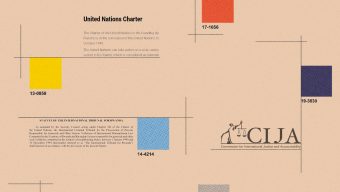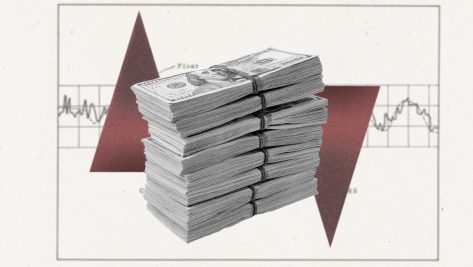The audit committee plays a fundamental role in the good governance of any organization. A company’s ethics and transparency are perhaps the best indicators of its reputation. The composition—and, in particular, the experience—of a company’s audit committee therefore plays a crucial role in ensuring efficient and reliable oversight of financial reporting processes. As various studies have demonstrated, the profile of an audit committee’s members—including their social capital—can affect the quality of the company’s financial reporting.
The social capital factor
Individuals generate social capital by interacting with other members of their social network. Social capital can be defined as the advantage created by a person’s position within the structure of her social network. As previous studies have shown, social capital arises from the information-transmitting potential of an individual’s networks and the links of dependence created through these trust-based relationships. The set of resources derived from a person’s contacts and social relationships would theoretically be expected have a positive effect on that individual.
Empirical studies on corporate governance have mainly focused on the benefits derived from social networks. One such benefit is the positive effect that information transfer among audit committee members can potentially have on financial reporting quality. However, interaction with the members of one’s social network can also have negative effects, suggesting a “dark side” of social capital that could potentially worsen the performance of board members in general and audit committee members in particular.
Social capital arises from the information-transmitting potential of an individual’s networks and the links of dependence created through these trust-based relationships.
Ties that bind, ties that blind
Let us consider the case of audit committee members specifically. When these individuals are “cross-appointed”—i.e. when they sit on multiple committees at the same time—they develop connections with other directors in the same situation, and this can have a negative effect on their performance at each of the companies they serve. This effect can be attributed to a lower degree of decision-making autonomy and independence as well as the potential “contagion” effect of questionable accounting practices. From this perspective, an audit committee’s social capital could have a negative impact on financial reporting quality.
Influential indicators
Social capital is not easy to measure. Drawing on the work of contemporary researchers, we can identify four main indicators:
- Degree centrality. This indicator considers the number of connections that an individual has with other people in her network. An individual is said to be central if her ties make her visible to other people in the network. Thus, audit committee members with a high degree of centrality can gather information about accounting practices from a larger number of sources, thanks to their position within the network.
- Connectivity. This indicator has to do with the quality of a person’s connections. Specifically, it measures an individual’s position within a network structure in terms of the quality—as opposed to the quantity—of his contacts. Like degree centrality, connectivity can influence the quality of the information that individuals obtain through their connections.
- Brokerage. This indicator shows how often an individual acts as an intermediary within her network, thus providing an indirect measure of the power she enjoys as a consequence of her location in the network. The work of audit committee members can be affected by their brokerage position within the network.
- Strong ties. This indicator measures the number of three-way relationships among individuals in the same network. Strong ties inculcate commitment and constitute a source of information, which in turn can affect an individual’s attitudes, opinions, and decisions.
Using these indicators, we studied the effect of audit committees’ social capital on financial reporting quality. To do this, we gathered data from a sample of listed companies in the United States. We examined the social networks of the sample companies’ board members, analyzing four subgroups in particular: audit committee members, non-audit committee members, audit committee members designated as financial experts, and audit committee members not designated as financial experts. The four indicators described above were calculated at the director level for each subgroup and later aggregated at the company level. Financial reporting quality was measured using accruals-based quality models (a method widely used in previous research).
Our empirical analysis showed that the social capital of audit committee members does indeed have an effect on financial reporting quality. However, the same does not hold for non-audit committee members, whose social capital does not appear to exert a significant influence on financial reporting quality. Specifically, our findings suggest that the social capital of audit committee members has a negative influence on financial reporting quality, supporting the hypothesis that social capital has a “dark side.”
When audit committee members with and without financial experience were analyzed separately, the results varied depending on the social capital indicator considered. For the degree centrality indicator, we observed a negative effect on reporting, but only in the case of audit committee members designated as financial experts. That is, when board members are cross-appointed—i.e. they serve on multiple committees—and have a larger number of connections, the quality of their performance appears to suffer. However, for the other indicators—connectivity, brokerage, and strong ties—the negative relationship between social capital and financial reporting quality was found only for non-experts. In other words, the quality and power of an individual’s contacts appear to exert an influence only in the case of audit committee members without financial experience. In conclusion, the divergence between the results for experts and non-experts for some indicators suggests that further reflection on social capital measures is warranted.
Our findings suggest that the social capital of audit committee members has a negative influence on financial reporting quality.
Implications for regulators
Regulators have long expressed concerns about cross-appointments at publicly traded companies. In Spain, the authors of the Olivencia Report argued that the cross-appointment of directors to the board of more than one company should be avoided. Our findings suggest that ties among audit committee members are especially important. Specifically, both financial experts and their non-expert counterparts on the audit committee could be compromising the quality of their firm’s financial reporting as a result of their links to other board members—a phenomenon that could be called “cross-appointment of audit committee members.”
Our findings underscore the need for rules that limit financial experts’ ability to hold multiple executive posts and suggest that the real contribution of non-financial experts on audit committees should be assessed in greater depth.
© IE Insights.











